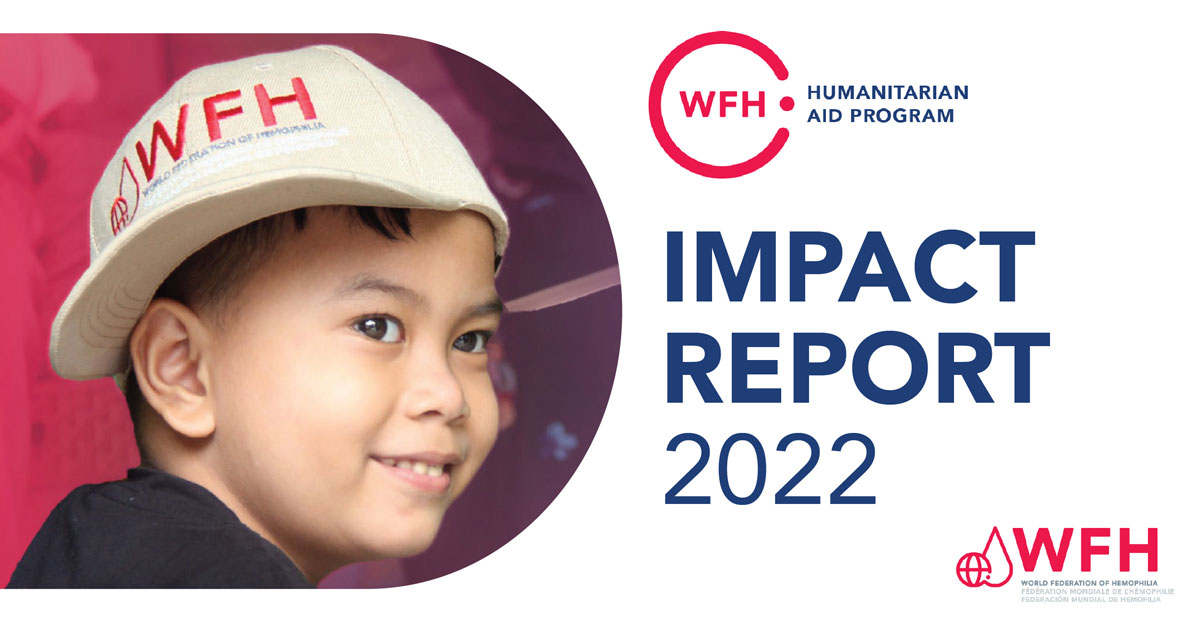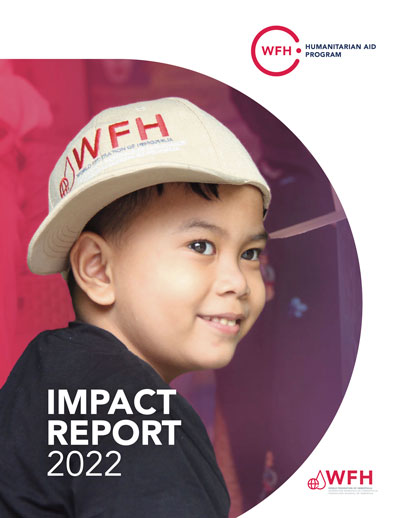The WFH Humanitarian Aid Program improves the lack of access to care and treatment by providing much-needed support to national member organizations (NMOs), hemophilia treatment centres (HTCs), and healthcare practitioners (HCPs) in emerging countries. This support comes in the form of education, training, and donated factor and non-factor replacement therapy. The objective of the program is to make it possible for people with inherited bleeding disorders to reliably access safe and consistent treatment and care, regardless of their type of bleeding disorder, gender, or location.
The success of the WFH Humanitarian Aid Program is a direct result of a collective effort between the WFH, pharmaceutical partners, governments, and the global bleeding disorders community. On behalf of everyone at the WFH, thank you for your support and for your conviction in us.
—Assad E. Haffar, MD, MSc, WFH Medical & Humanitarian Aid Director
The 2022 report shows the major impact that product donations and support, both in-person and virtual last year, have had global bleeding disorders communities in developing countries. These efforts were recognized—for the very first time—in The Lancet Haematology, one of the most prestigious medical journals in the world. The report also shows how the program continued to work to increase diagnosis, improve education and training, and advocate with governments.
Here are some highlights from 2022:
- 197 million IUs of clotting factor concentrates donated
- Nearly 3.3 million mg of non-factor replacement therapy donated
- 3,964 patients on prophylactic treatment
- 25,000+ people with inherited bleeding disorders (PWBDs) treated
- 41,700+ bleeding episodes managed
- 1,400+ surgeries facilitated
To read the WFH Humanitarian Aid Program Impact Report 2022, click here. To find out more about the WFH Humanitarian Aid Program, click here.
About the WFH Humanitarian Aid Program
The WFH Humanitarian Aid Program improves the lack of access to care and treatment by providing much-needed support for people with inherited bleeding disorders in developing countries. By providing patients with a more predictable and sustainable flow of humanitarian aid donations, the WFH Humanitarian Aid Program makes it possible for patients to receive consistent and reliable access to treatment and care. None of this would be possible without the generous support of Sanofi and Sobi, our Founding Visionary Contributors; Bayer, CSL Behring and Roche, our Visionary Contributors; Grifols, our Leadership Contributor; and Takeda and Japan Blood Products Organization, our Contributors. To learn more about the WFH Humanitarian Aid Program, visit www.treatmentforall.org.














